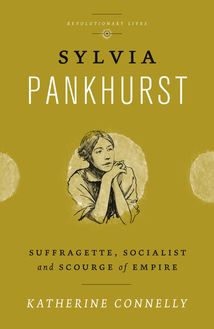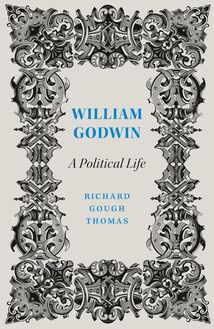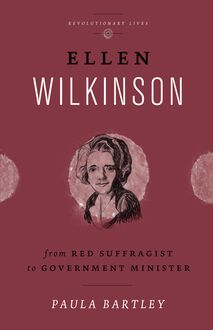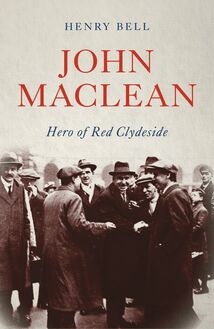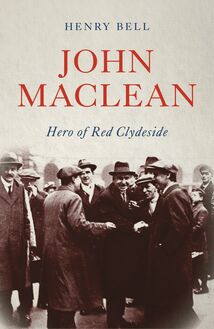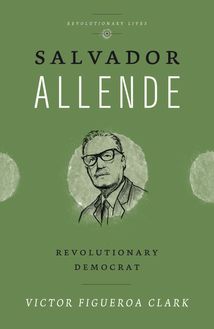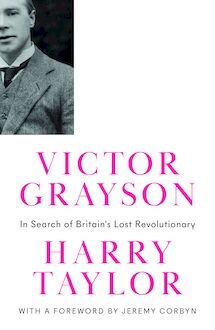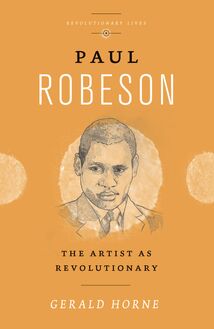Ellen Wilkinson , livre ebook
108
pages
English
Ebooks
2014
Vous pourrez modifier la taille du texte de cet ouvrage
Obtenez un accès à la bibliothèque pour le consulter en ligne En savoir plus
Découvre YouScribe en t'inscrivant gratuitement
Découvre YouScribe en t'inscrivant gratuitement
108
pages
English
Ebooks
2014
Vous pourrez modifier la taille du texte de cet ouvrage
Obtenez un accès à la bibliothèque pour le consulter en ligne En savoir plus
Publié par
Date de parution
20 février 2014
Nombre de lectures
3
EAN13
9781783710171
Langue
English
Poids de l'ouvrage
1 Mo
Born in October 1891 into a working-class textile family, Wilkinson was involved in women's suffrage, helped found the British Communist Party, led the Labour Party's anti-fascist campaign, headed the iconic Jarrow Crusade and was the first female Minister of Education.
In this lively and engaging biography, Paula Bartley charts the political life of this extraordinary campaigner who went from street agitator to government minister whilst keeping her principles intact.
List of Illustrations
Acknowledgements
Preface
1. The Making of 'Red Ellen', 1891-1914
2. The First World War and Its Aftermath, 1914-24
3. On the Opposition Benches, 1924-29
4. In and Out of Power, 1929-35
5. Fighting Fascism and Imperialism in the 1930s
6. In Parliament Again, 1935-39
7. The Second World War, 1939-45
8. Post-War, 1945-47
Conclusion
Notes
Index
Publié par
Date de parution
20 février 2014
Nombre de lectures
3
EAN13
9781783710171
Langue
English
Poids de l'ouvrage
1 Mo
Ellen Wilkinson
Revolutionary Lives
Series Editors: Sarah Irving, University of Edinburgh;
Professor Paul Le Blanc, La Roche College, Pittsburgh
Revolutionary Lives is a series of short, critical biographies of radical figures from throughout history. The books are sympathetic but not sycophantic, and the intention is to present a balanced and, where necessary, critical evaluation of the individual’s place in their political field, putting their actions and achievements in context and exploring issues raised by their lives, such as the use or rejection of violence, nationalism, or gender in political activism. While individuals are the subject of the books, their personal lives are dealt with lightly except insofar as they mesh with political concerns. The focus is on the contribution these revolutionaries made to history, an examination of how far they achieved their aims in improving the lives of the oppressed and exploited, and how they can continue to be an inspiration for many today.
Also available:
Salvador Allende:
Revolutionary Democrat
Victor Figueroa Clark
Hugo Chávez:
Socialist for the Twenty-first Century
Mike Gonzalez
Leila Khaled:
Icon of Palestinian Liberation
Sarah Irving
Jean Paul Marat:
Tribune of the French Revolution
Clifford D. Conner
Sylvia Pankhurst:
Suffragette, Socialist and Scourge of Empire
Katherine Connelly
Gerrard Winstanley:
The Digger’s Life and Legacy
John Gurney
www.revolutionarylives.co.uk
Ellen Wilkinson
From Red Suffragist to Government Minister
Paula Bartley
First published 2014 by Pluto Press
345 Archway Road, London N6 5AA
www.plutobooks.com
Distributed in the United States of America exclusively by
Palgrave Macmillan, a division of St. Martin’s Press LLC,
175 Fifth Avenue, New York, NY 10010
Copyright © Paula Bartley 2014
The right of Paula Bartley to be identified as the author of this work has been asserted by her in accordance with the Copyright, Designs and Patents Act 1988.
Every effort has been made to trace copyright holders and to obtain their permission for the use of copyright material in this book. The publisher apologises for any errors or omissions in this respect and would be grateful if notified of any corrections that should be incorporated in future reprints or editions.
British Library Cataloguing in Publication Data
A catalogue record for this book is available from the British Library
ISBN 978 0 7453 3238 3 Hardback
ISBN 978 0 7453 3237 6 Paperback
ISBN 978 1 7837 1016 4 PDF eBook
ISBN 978 1 7837 1018 8 Kindle eBook
ISBN 978 1 7837 1017 1 EPUB eBook
Library of Congress Cataloging in Publication Data applied for
This book is printed on paper suitable for recycling and made from fully managed and sustained forest sources. Logging, pulping and manufacturing processes are expected to conform to the environmental standards of the country of origin.
10 9 8 7 6 5 4 3 2 1
Typeset from disk by Stanford DTP Services, Northampton, England
Text design by Melanie Patrick
Simultaneously printed digitally by CPI Antony Rowe, Chippenham, UK and Edwards Bros in the United States of America
For Réka and Dóra Dudley
Contents
List of Illustrations
Acknowledgements
Preface
1 .
The Making of ‘Red Ellen’, 1891–1914
2 .
The First World War and its Aftermath, 1914–24
3 .
On the Opposition Benches, 1924–29
4 .
In and Out of Power, 1929–35
5 .
Fighting Fascism and Imperialism in the 1930s
6 .
In Parliament Again, 1935–39
7 .
The Second World War, 1939–45
8 .
Post-war, 1945–47
Conclusion
Notes
Index
List of Illustrations
1.1
Ellen in her graduation gown
2.1
Women’s International League for Peace and Freedom, Zurich, 1919
3.1
Ellen’s election leaflet
4.1
Ellen and Labour women MPs, 1929. Back row: Marion Phillips, Edith Picton-Turbeville, Ethel Bentham and Mary Hamilton. Front row, left to right: Cynthia Mosley, Susan Lawrence, Margaret Bondfield, Ellen Wilkinson and Jenny Lee
5.1
Ellen and Clement Attlee inspecting bomb damage in Madrid, 1937
6.1
Ellen relaxing with the Jarrow marchers
7.1
Ellen at home
7.2
Meeting the fire-guards
8.1
The Labour Party Cabinet, 1945
8.2
Ellen chairing the first UNESCO conference
Acknowledgements
I would like to thank a number of historians: Robert Pearce, who read and commented on an early draft of this book and whose advice, as ever, was invaluable; Lesley Hall, June Hanham, Karen Hunt, Sue Johnson, Christopher Knowles, Godfrey Lomas, Janis Lomas, Sue Morgan, Alison Ronan and Nicola Wilson for sharing their research and ideas with me; and Diane Atkinson, Maggie Andrews and Angela V. John who helped in a variety of useful ways. G.W. Jones patiently answered innumerable questions so a huge thanks to him too. I am grateful to other historians I have not referenced due to lack of space: a bibliography can be requested from drpaulabartley@outlook.com . Thanks also to Pluto Press and its editorial team for having faith in Ellen Wilkinson: in particular to David Castle and Sarah Irving for their support and guidance.
Historians are rightly indebted to archivists. I would like to thank Rob Whitfield, McMaster University, Canada; Elaine Moll, Hull History Centre; Professor Marion Shaw, literary executor of the Winifred Holtby archives; the Devon Record Office; Ian Rawes at the British Library; Guy Baxter and Danielle Mills at the University of Reading; Rayanne Byatt at the Coventry History Centre; Paul Taylor at the Birmingham Archives and Heritage Centre; Inderbir Bhullar at the Women’s Library and all the archivists at the Bodleian, the National Archives and Middlesborough Central Library for their help. The Modern Record Centre at the University of Warwick was particularly obliging: Helen Ford even helped guide me through the complex business of copyright permissions. The reputation of Mancunians as friendly helpful people continues to thrive. It was always such a delight to visit any Manchester archive because everyone was so welcoming. Thank you to everyone at the Working Class Movement Library and to Jane Hodgkinson at the Manchester Archives and Local Studies Centre. Very extra special thanks to Darren Tredwell, at the People’s History Museum, Manchester. His knowledge of Labour history and its archives is humungous and his help in my research was equally so. I spent many happy days at the USDAW office in Manchester. It was heartening to see a union in fine shape and whose attitude to any worker, including me, was supportive. Special thanks to George McLean, Emily Rowles, Alison Jeapes, Carol Bates, Tracey Gilbert and Angela Buckley for their generosity. Thanks also to Sid Gibson, Jarrow. I would also like to thank Phil Dunn at the People’s History Museum, Ian White and Carol Darmouni at UNESCO, the TUC and Abby Gray at Getty for providing such great photographs of Ellen Wilkinson.
Cost would have made it difficult for me to have afforded to visit many of the archives. A generous grant, sponsored by Flora Fraser and Peter Soros, in affectionate memory of Elizabeth Longford, and administered by the Society of Authors enabled me to do archival research in London, Manchester, Newcastle and Liverpool. Thank you very, very much.
I would like to thank Clare Short who generously and openly shared with me what it was like to be a left-wing feminist in Parliament; and Mark Fisher, former MP for Stoke on Trent, who helped me understand life as a constituency MP for a working-class town blighted by unemployment. Thanks also to Rob and Jacqui Hamp, Teréz Kleisz, James and Kathy Stredder for their help, and to Diane Atkinson and Patrick Hughes for their amazing generosity.
My greatest thanks are to Jonathan Dudley who helped me with my research in Manchester, photographed material at Kew, accompanied me on very many research trips, read every word, deleted (nearly) every triplet and (nearly) every superfluous, redundant and often pointless adjective. The book is dedicated to younger members of our family.
Preface
One morning when it was pouring with rain, I took a taxi from Manchester Piccadilly railway station to USDAW 1 trade union headquarters and chatted to the cab driver. He asked me why I was in the city. When I told him I was writing a biography of Ellen Wilkinson his head swivelled round and he exclaimed ‘Ellen Wilkinson? No way! My daughters used to go to the school named after her.’ There was a brief pause until he said, ‘Who was she?’
In her day ‘Red Ellen’ as she became known, was arguably the most famous, certainly the most outspoken, British woman politician. She was a fighter. A strong unionist and fierce left-wing socialist, she championed the poor and the vulnerable and was merciless in attacking the Conservatives for their complacency and self-interest. She developed strong feminist principles and for most of her life fought hard for equal rights for women. In October 1936, directly flouting Labour Party policy, she led 200 unemployed men on the Jarrow Crusade to London. Any form of political persecution was anathema to her and she fought against the growing Fascist menace throughout the 1930s, helping to acquit most of those accused of burning down the Reichstag and coordinating aid to the legitimate Spanish government. During the Second World War, Winston Churchill appointed her to a junior ministerial post where she took charge of shelter provision. By 1945, she was the most important woman in the Labour Party, co-authoring Labour’s Let us Face the Future . When Labour won the post-war election and Clement Attlee set about forming his Cabinet, he pencilled in Ellen Wilkinson for Secretary of Health where she would have been responsible for the introduction of the National Health Service. 2 At her request, however, she was appointed M
